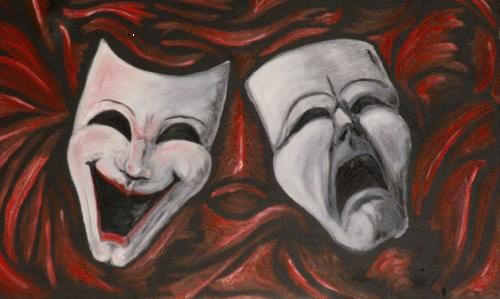
The Artists

 The Artists |
 |
England thrives with talent. Theatre goers and artist admirers come to England to take in the vast amount of legendary performers and painters. Below you will find one popular Painter and Actor that have changed the English Arts.
The Painter
Joseph Mallord William Turner
He was born in Maiden Lane, Covent Garden, London, England on April 23, 1775. He was an English Romantic landscape painter, watercolourist and printmaker. Turner was considered a controversial figure in his day, but is now regarded as the artist who elevated landscape painting to an eminence rivalling history painting. Although renowned for his oil paintings, Turner is also one of the greatest masters of British watercolour landscape painting. He is commonly known as "the painter of light "and his work regarded as a Romantic preface to impressionism.
Turner's talent was recognized early in his life. Financial independence allowed Turner to innovate freely; his mature work is characterized by a chromatic palette and broadly applied atmospheric washes of paint. According to David Piper's The Illustrated History of Art, his later pictures were called "fantastic puzzles." However, Turner was still recognized as an artistic genius: the influential English art critic John Ruskin described Turner as the artist who could most "stirringly and truthfully measure the moods of Nature."
Suitable vehicles for Turner's imagination were to be found in the subjects of shipwrecks, fires (such as the burning of Parliament in 1834, an event which Turner rushed to witness first-hand, and which he transcribed in a series of watercolour sketches), natural catastrophes, and natural phenomena such as sunlight, storm, rain, and fog. He was fascinated by the violent power of the sea, as seen in Dawn after the Wreck (1840) and The Slave Ship (1840).
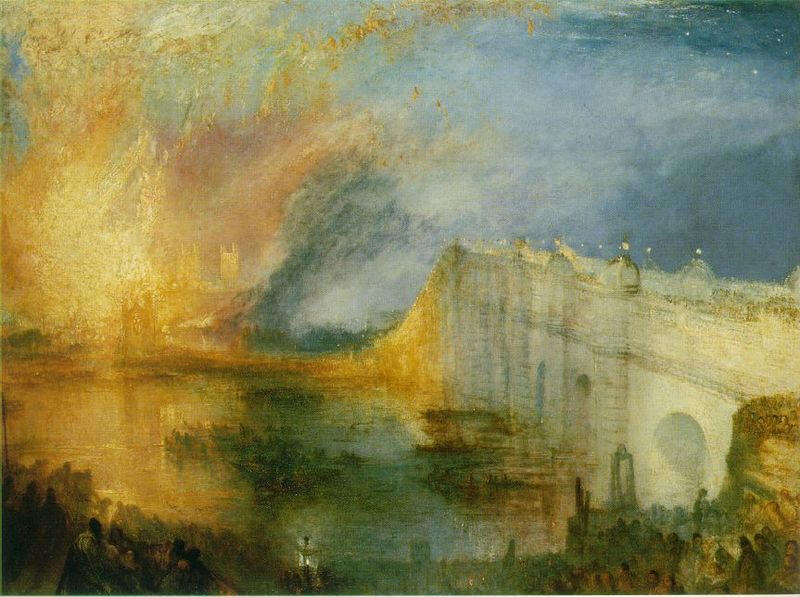 |
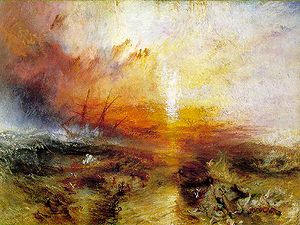 |
| The Burning Parliament | The Slave Ship |
The Actor
David Garrick
David Garrick was born February 19, 1717. He was an English actor, playwright, theatre manager and producer who influenced nearly all aspects of theatrical practice throughout the 18th century. He appeared in a number of amateur theatricals, and with his appearance in the title role of Shakespeare's Richard III audiences and managers began to take notice. As an actor, Garrick promoted realistic acting that departed from the bombastic style that was entrenched when Garrick first came to prominence. His acting delighted many audiences and his direction of many of the top actors of the English stage influenced their styles as well. During his tenure as manager of Drury Lane, Garrick sought to reform audience behaviour. While this led to some discontent among the theatre-going public, many of his reforms eventually did take hold. In addition to audiences, Garrick sought reform in production matters, bringing an over-arching consistency to productions that included scenery, costumes and even special effects.
Garrick's influence extended into the literary side of theatre as well. Critics are almost unanimous in saying he was not a good playwright, but his work in bringing Shakespeare to contemporary audiences is notable. In addition, he adapted many older plays in the repertoire that might have been forgotten. These included many plays of the Restoration era. Indeed, while influencing the theatre towards a better standard he also gained a better reputation for theatre folk. This accomplishment led Samuel Johnson to remark that "his profession made him rich and he made his profession respectable."
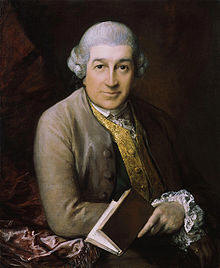 |
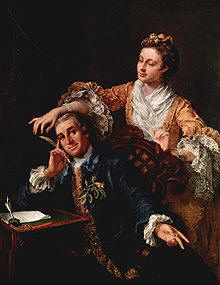 |
| David Garrick | David Garrick and his wife, Eva Marie Veigel |